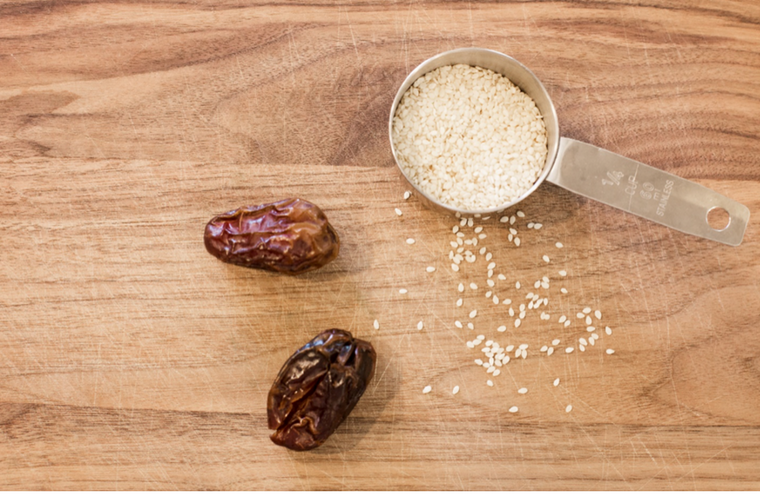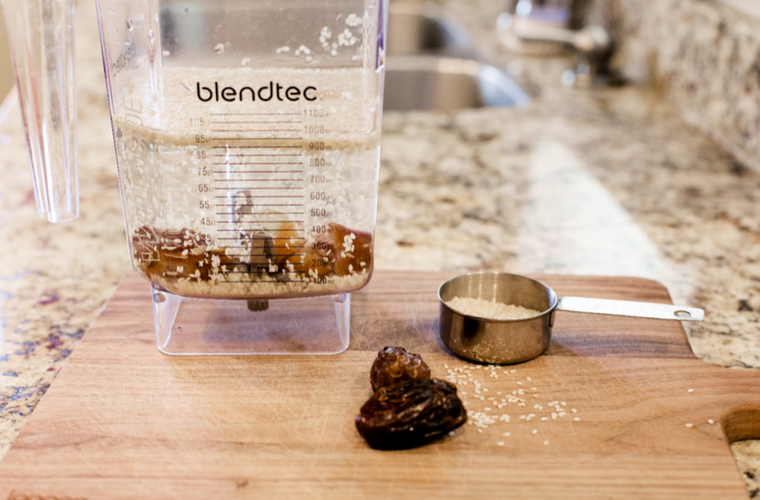Mineral deficiencies are commonplace in today’s world. Processed and refined foods have taken the stage in our busy, fast-paced lives–enriched or fortified foods just don’t deliver nutrients to our cells the same way that whole foods do. In addition to diets that are lacking, depletion of mineral content in soil and decreased ability to absorb nutrients are of concern.
Below we will discuss some of the most common mineral deficiencies and how to get more of them in your diet.
VITAMIN B12
Sources: meat and fermented foods & drinks such as kombucha, kimchi, & sauerkraut.
Signs of deficiency: fatigue, mood disturbance, tingling in extremities, smooth tongue.
*Most people (including meat eaters) are deficient in B12, even if bloodwork shows proper levels. A B12 liquid containing methylcobalamin can be very helpful if you have symptoms of fatigue.
ZINC
Source: legumes, nuts (namely cashews), seeds (pumpkin & sesame), oatmeal.
Signs of deficiency: poor growth & delayed maturation in kids, poor wound healing with easy scarring, weakened immune function and frequent colds & cases of flu, brittle hair, hair loss, skin conditions such as eczema & dermatitis.
*Zinc deficiency is becoming an epidemic around the world. In addition to food, it is recommended to take a zinc supplement in order to give your body what it needs. Zinc Picolinate, 30mg twice a day for adults and 5mg twice a day for kids is ideal for almost everyone.
VITAMIN C
Sources: many fruits and vegetables, but highest in citrus fruits, strawberries, broccoli, brussel sprouts, kale, peppers, & guava.
Signs of deficiency: Easy bruising, bleeding gums, poor wound healing, & nosebleeds.
*If you tend to have a weak immune system, take Vitamin C daily. Otherwise, Vitamin C can be taken any time you feel run down or know a sickness is coming on. Ester C is the best oral form to take.
IODINE
Sources: seaweed/kelp, prunes, bananas, green peas, & organic corn. Iodized salt is not the best method of increasing iodine. It is recommended to actually use sea salt or pink Himalayan salt and get iodine from other sources.
Signs of deficiency: Thyroid disorders like Hashimoto’s, poor concentration, dry skin & dry mouth, muscle pain, ovarian cysts, fibrocystic breasts.
*Iodine is a mineral that most people are deficient in & it is hard to get adequate amounts from food. A liquid iodine supplement such as J.Crowes Lugols solution 2%, 2 drops a day, can keep your iodine levels up. It is easy to mix the drops in a smoothie or juice every day.
VITAMIN D
Sources: shiitake mushrooms, salmon, mackerel, SUNLIGHT. Try to get 15 minutes of direct sunlight to skin for 15 minutes daily (without sunscreen).
Signs of deficiency: mood disorder, weak immune function and frequent colds & cases of flu, fatigue, hormone imbalance.
Iron- Found in spirulina, spinach, dried fruit such as raisins, sesame seeds, pistachios.
Signs of deficiency: fatigue, weakness, pale skin, rapid heart rate, dizziness, brittle hair and nails, headaches
MAGNESIUM
Sources: dark leafy greens, nuts, seeds, avocado, bananas, beans, whole grains, fish, dark chocolate. Magnesium is responsible for over 300 functions in your body. It is so important!
Signs of deficiency: chronic fatigue, headaches, migraines, constipation, muscle aches, high blood pressure, hormone imbalance, PMS, depression, diabetes, fibromyalgia, and osteoporosis. It has also been said that if you crave chocolate frequently (especially dark chocolate) you likely have a magnesium deficiency. Raise your hands ladies! ;)
*A relaxing way to increase magnesium levels is to soak in an Epsom salt bath for 20 minutes 3 times a week.
[Always check with a nutritionist or medical provider regarding doses of supplements and which ones are right for you.]  One of my favorite ways to add critical minerals in my diet every day is drinking sesame seed milk. It is easy to make and tastes delicious. Sesame seeds are a great source of zinc, copper, iron, magnesium, calcium, phosphorus, manganese. Dates, which are added to the milk, are a great source of zinc, iron, calcium, magnesium, folate, sodium, potassium, phosphorus.
One of my favorite ways to add critical minerals in my diet every day is drinking sesame seed milk. It is easy to make and tastes delicious. Sesame seeds are a great source of zinc, copper, iron, magnesium, calcium, phosphorus, manganese. Dates, which are added to the milk, are a great source of zinc, iron, calcium, magnesium, folate, sodium, potassium, phosphorus. 

SESAME SEED MILK
4 cups filtered water
2-4 Medjool dates- pitted & soaked in water until soft
¼ cup sesame seeds
Add all ingredients to blender. Blend on high for 60 seconds. Strain through fine mesh strainer or nut milk bag. Refrigerate and serve cold.
Makes four 8oz servings
A whole food diet can fuel your body and provide critical nutrients that your cells need to function properly. Do your best to add as many whole foods in your diet as possible, and “let thy food be thy medicine," as Hippocrates wisely said.


